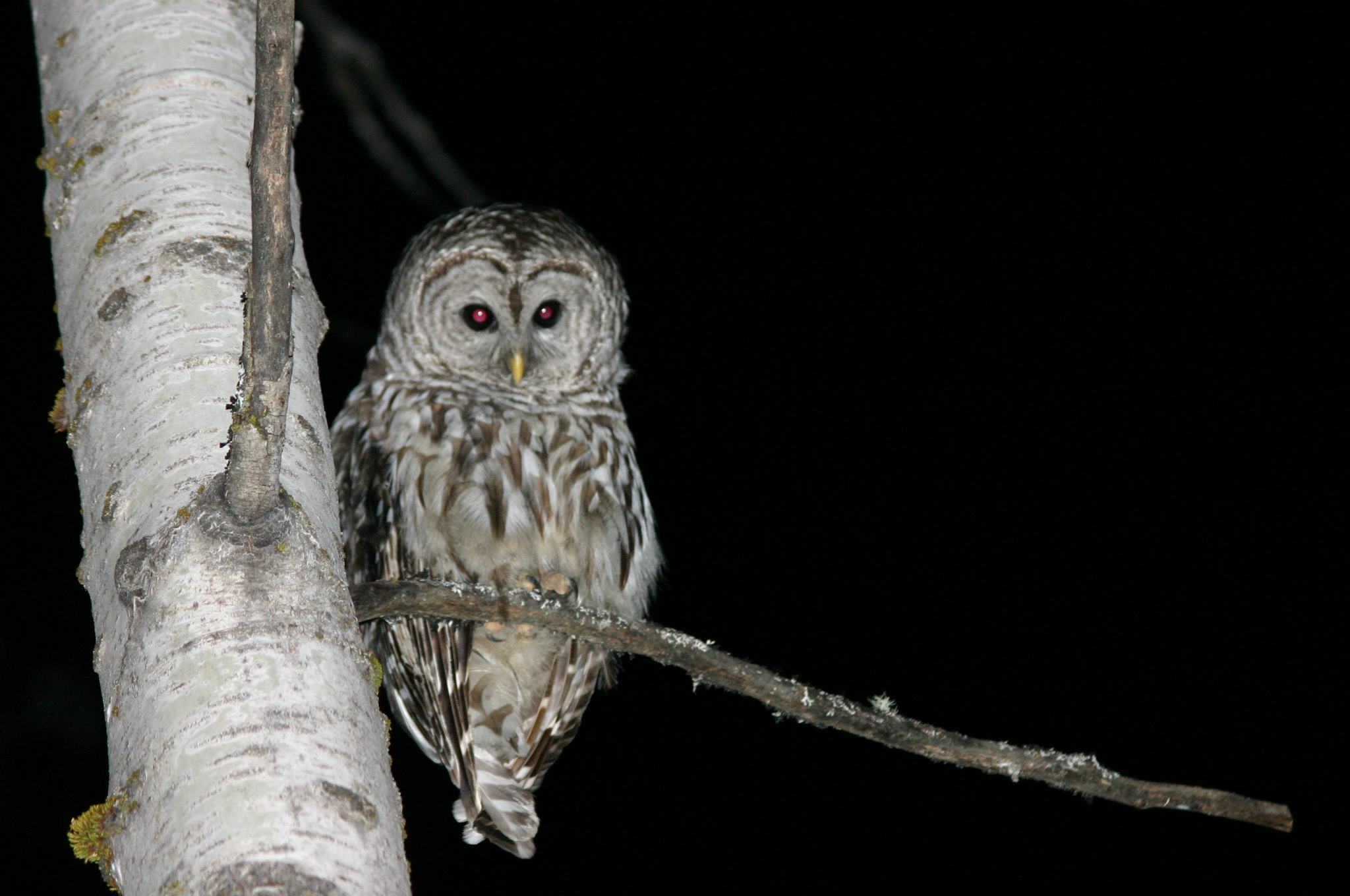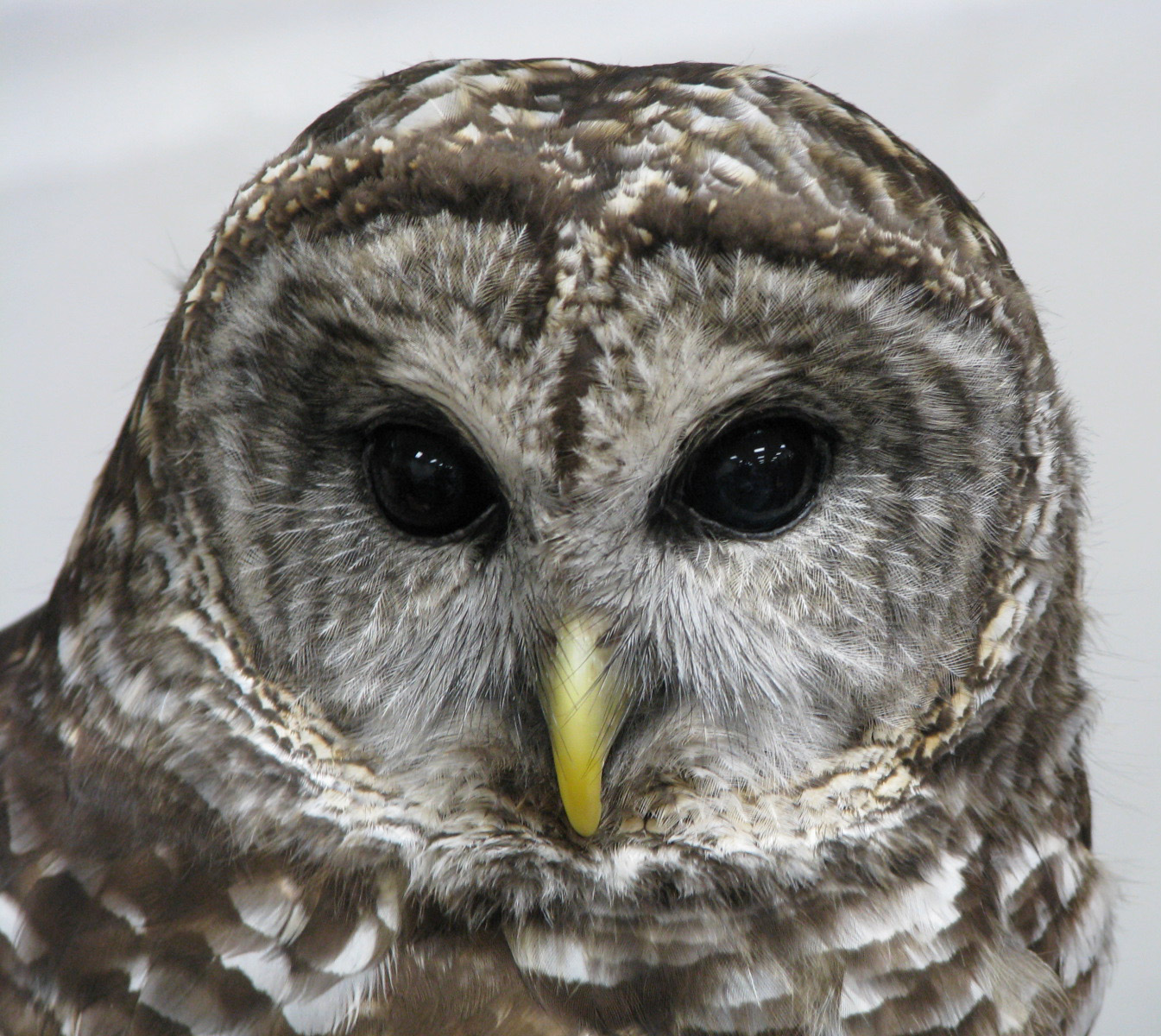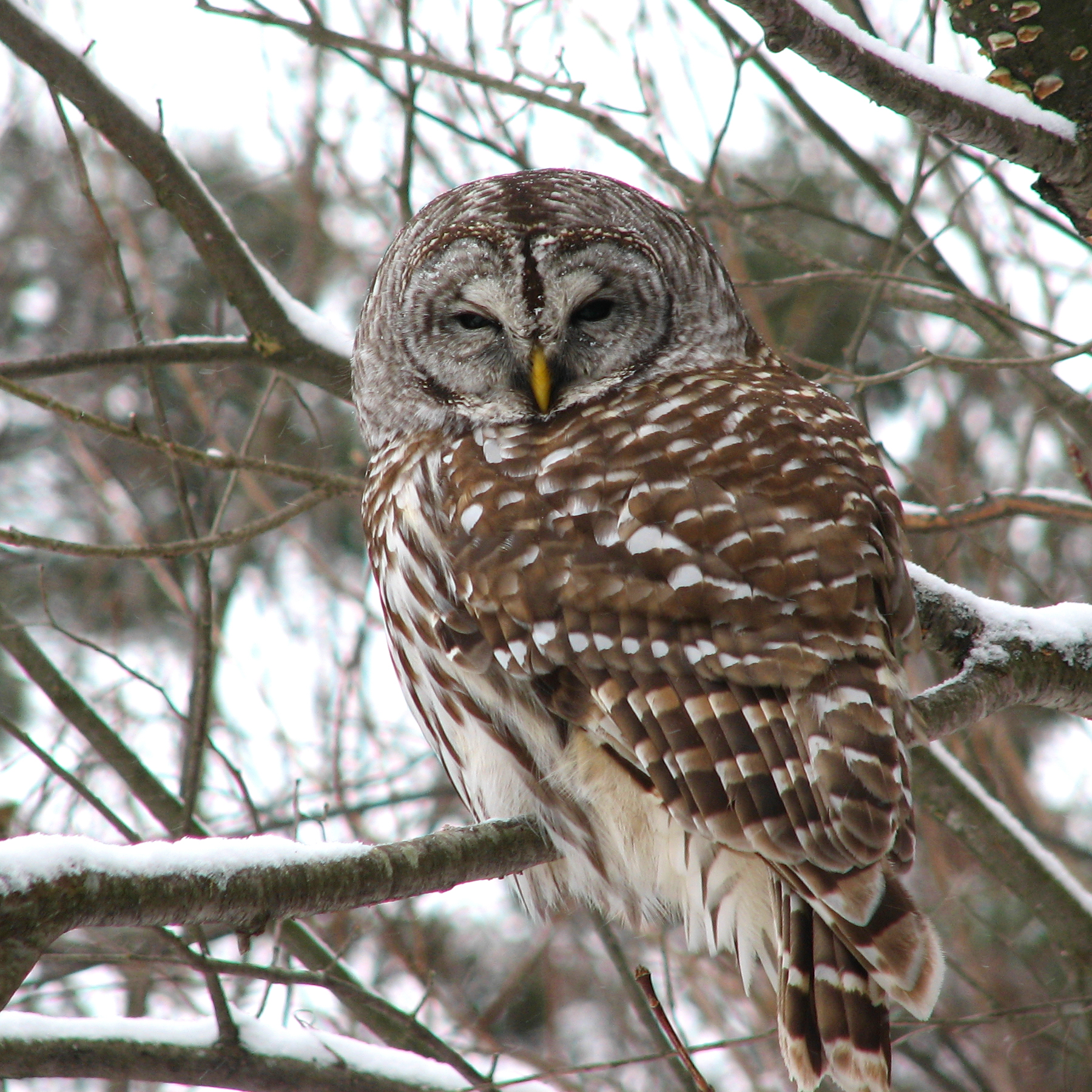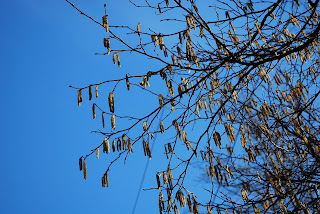...oOoOoOoOoOoOoOo...
It was a dark and stormy night... I was deeply engrossed in a book when I was shocked upright. Listening intently, my heart pounded and goose bumps arose as if I were in mortal danger. I thought I might be, as somewhere close outside was the most weird, eerie sound I've ever heard. Getting up my courage, I quietly unlocked and slowly opened the door. I listened for a few minutes - there is was again! And off in the distance, another answered. I can best describe the sounds as sort of a 3-way cross between old rusty bed springs, a very hoarse dog, and a rooster whose crow has run down and needs to be re-wound. As I moved into the yard, whatever it was saw or heard me and the sound stopped.oOoooo...
The next day, I tried to figure out what it might have been: coyote was off the list; it did not sound like any dog I know of; it was too low a sound to be a raccoon or an opossum; neither deer nor bear sound like that. The only thing it could possibly be was an owl.Photo by Wingchi Poon
Some owls do call our county home. The Barn, Western Screech-Owl, Snowy, Short Eared, and Northern Pygmy Owl are rare, but the Great Horned, Barred, and Northern Saw-Whet owls are more common. Most are nocturnal, although some are active during the day. Through the wonder of the Internet I was able to research and hear the calls of each of these owls. There is no doubt that what I heard was the Barred Owl (Strix varia)- the original "Hoot Owl". This highly vocal owl gives a loud and resounding "hoo, hoo, too-HOO; hoo, hoo, too-HOO, ooo" which is often phrased as "Who, cooks, for you? Who, cooks, for-you, all?" The last syllable drops off noticeable. The calls are often heard in a series of eight, then silence, when the owl listens for a reply from other owls. That is exactly what I heard.
photo by Terren
Reaching 16-25 inches in length with a wingspan of 38-50 inches, the Barred Owl preys mainly on Meadow voles, shrews and deer mice. It also eats rats, squirrels, young rabbits, bats, moles, opossums, and weasels. Birds are taken occasionally, as well as small fish, amphibians, reptile, and insects.
Photo by D. Gordon E. Robertson
I have yet to see these wondrous birds, although I hear them every once in a while. I imagine them perched high in one of the old dead trees, scanning the pasture for mice or rats. I would hope they stay, perhaps nesting nearby in the cavity of a tree or in an abandoned hawk, squirrel, or crow nest. Devoted parents, they have been known to dive bomb anything (or one!) perceived as a threat to their nests. They care for their young for at least 4 months, much longer than most other owls. the young usually disperse less than 6 miles before settling. Pairs mate for life and territories and nest sites are maintained for many years. They have been known to live up to 10 years in the wild. with most deaths likely to be related to man (shooting, road kills, etc.). Other than man, Great Horned Owls are their only natural enemy.
I no longer fear those strange sounds-in-the-night; we are honored that they are visiting "our" woods. They may not stay, but no matter - their being here, just this once, sparks the imagination and generates thoughts toward brighter days and hope for the future. It's a good reminder that - no matter what - the circle of life continues.
...oOoOoOoOoOoOoOo...
I no longer fear those strange sounds-in-the-night; we are honored that they are visiting "our" woods. They may not stay, but no matter - their being here, just this once, sparks the imagination and generates thoughts toward brighter days and hope for the future. It's a good reminder that - no matter what - the circle of life continues.
OOOOOOOOO
So we fix our eyes not on what is seen,
but on what is unseen.
For what is seen is temporary,
but what is unseen is eternal.
2 Corinthians 4:16-18
O
For more information on owls: http://www.owlpages.com/
Barred Owl picture files
from Wikimedia Commons
O
For more information on owls: http://www.owlpages.com/
Barred Owl picture files
from Wikimedia Commons




















































